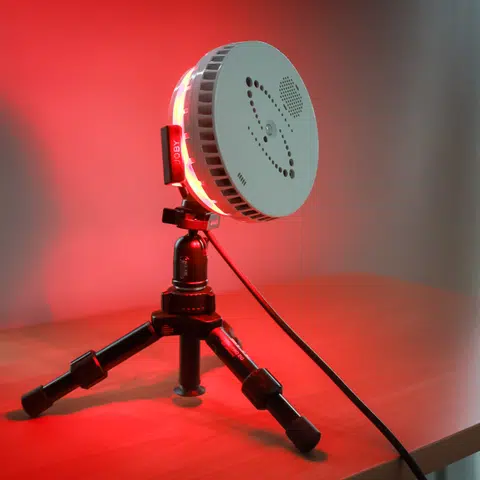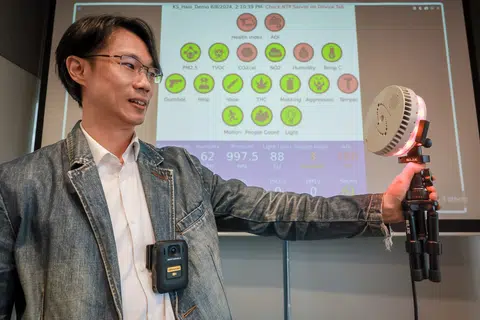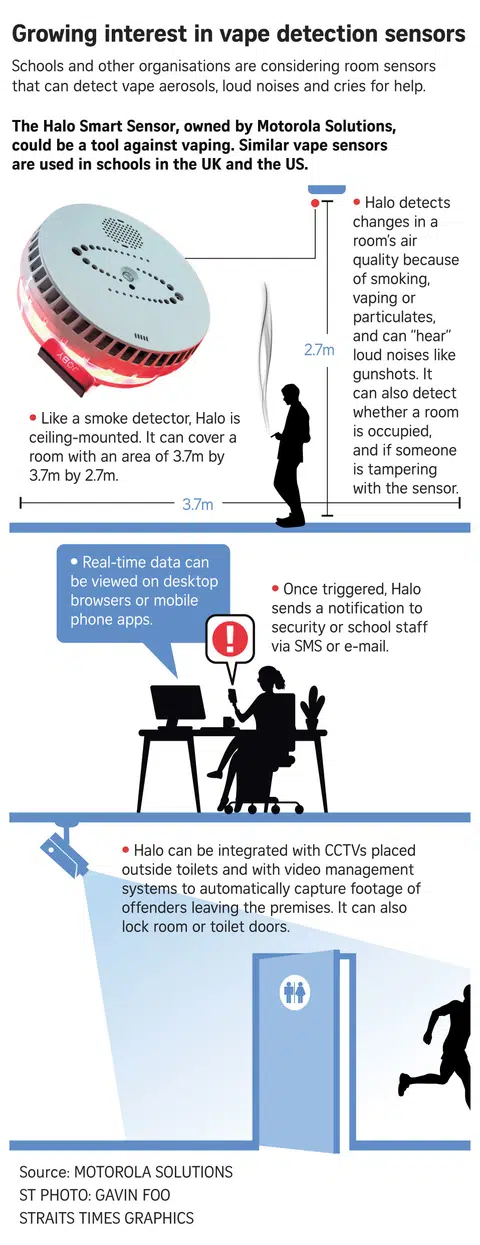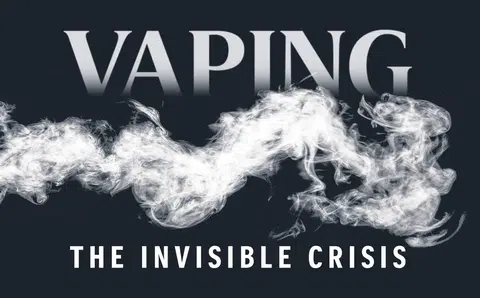Temasek Poly catches students vaping during detector trial
There is growing interest from schools and organisations in vape detectors.
Temasek Polytechnic (TP) has caught several students vaping during a recent trial of detectors on campus, in a bid to curb the use of e-vaporisers.
The students faced disciplinary action, said a TP spokeswoman, without providing further details.
The polytechnic is currently assessing the effectiveness of the vape detectors and how suitable they are for wider use, amid growing interest from schools and organisations here in such sensors.
The insights from TP's trial will support ongoing efforts to deter vaping on school grounds, including stepped up security patrols, the spokeswoman said in response to queries from The Straits Times.
The vaping scourge has also seen schools in countries like Britain and the United States using vape sensors to catch students, as more teenagers pick up vapes and e-cigarettes.
Republic Polytechnic (RP) said it does not have plans to install vape detectors on campus. Singapore Polytechnic (SP) said that it will "continue to assess the use of vape detection systems as part of ongoing measures to tackle vaping".
Nanyang Polytechnic (NYP), Ngee Ann Polytechnic (NP) and the Institute of Technical Education (ITE) did not respond to queries about whether they have similar plans.
Vape detectors, which are generally the size of a saucer, work by monitoring a room's air quality by sensing smoke, vape aerosols and particulates.

Innotec Solutions, a local company promoting vape detectors, said the number of inquiries for its vape detectors has doubled in the last five weeks.
Its spokesman, Mr Wilbert Tan, said: "I think schools are now more open to the idea of using technology as a countermeasure against vaping."
In the last few months, his company has installed vape detectors for a polytechnic, an international school and several secondary schools.
A check online shows there are five companies that sell vape detectors in Singapore.
Motorola Solutions, another vape detector manufacturer, said it has seen more inquiries in the past two to three months. It has fielded more inquiries about its Halo Smart Sensor in Singapore, following reports of growing use of vapes and Kpods among students.
Without disclosing figures, Motorola Solutions' channel business lead for the Asia-pacific region Martin Chappell said the company is engaging secondary schools and tertiary institutions to better understand their needs.
Mr Chappell said: "Presently, one school, which we cannot name, is undertaking a proof of concept trial with a live operational system of Halo technology to gather user feedback and evaluate it for a wide scale deployment."
The palm-sized Halo Smart Sensor, which costs about $2,000, is a ceiling-mounted device that detects smoke, vape aerosol, loud noises and even cries for help.
If tampered with, it will send a notification to security or school management staff via SMS or e-mail. Real-time data can be viewed on a desktop browser or mobile phone apps.

Halo can also be linked with CCTV cameras outside toilets to identify offenders, and programmed to automatically lock toilet or classroom doors if a vaping attempt is detected.
Mr Chappell said hospitals, nursing homes and hotels are also interested in the device.
Mr Ben Chester Cheong, a law academic at the Singapore University of Social Sciences, said exploring the use of vape detectors is timely. He said schools that delay the installation of such detectors could allow the normalisation of vaping.
Mr Cheong, who also practises law at RHTLaw Asia, said: "Once vaping becomes embedded in campus culture, intervention becomes exponentially more difficult and expensive. The scale of this crisis demands coordinated deployment across all educational institutions. We should not wait for each school to individually discover they have a problem."
He added: "If we are serious about deterrence, we need detection capabilities that match the sophistication of the threat we are facing."
Mr N. Sivarajan, principal of Sengkang Secondary, said that while vape detectors involve policing students, students also need to learn to make responsible decisions.
"The larger goal is to have kids not want to go near these vices, not just in a school environment, but in any environment," he said.
In his school, before the start of the National School Games, student athletes pledge not to vape as part of the school's anti-vaping campaign.
"When they do it visually in front of the whole school during the oath-taking, we make it quite explicit that staying vape-free is now the 'in thing'," said Mr Sivarajan, adding that such actions affirm most students that they are on the right path.
Increased checks
On Aug 17, Prime Minister Lawrence Wong highlighted vaping as a serious concern during his National Day Rally speech, saying the Government will treat it as a drug issue with stiffer penalties to be imposed.
He said nationwide enforcement will be stepped up, and a major public education drive will be mounted, starting in schools and the institutes of higher learning (IHLs), as well as during national service.
IHLs like RP and the ITE said they have increased the frequency of patrols and checks, while other polytechnics said they also conduct checks on their campuses.
Other measures include educating students about the ills of vaping and providing counselling support to help them quit vaping.
In 2024, 2,000 students, including those from IHLs, were reported for possessing or using vapes in Singapore, up from 900 cases in 2023 and 800 cases in 2022.
Mr Cheong said that with vape detectors, passive surveillance will turn into active prevention.
Likening this approach to traffic enforcement, he said: "When students know that vaping will be detected within seconds rather than relying on chance encounters with teachers, the risk-reward calculation changes dramatically."
And given that substances like etomidate - a powerful hospital anaesthetic - can cause immediate medical emergencies, rapid detection is potentially lifesaving when students are inhaling them, he added.

Other detection methods
While some secondary schools have been using metal detectors to randomly check students for e-vaporisers, there are other technologies to combat Kpod abuse.
A local company has recently brought in a rapid test kit - similar to a Covid-19 test kit - to detect etomidate, which is found in Kpods or vapes laced with synthetic drugs.
All you need to do is to swipe a piece of test paper provided in the kit onto the surface or nozzle of a vape. The test paper is put into a solution, which is then dripped onto a test indicator.
Results are obtained within five minutes. The company also has a test kit to detect etomidate in a person's urine.
The director of the company, who spoke on condition of anonymity, said: "There is scope for schools to use it on students they suspect of abusing Kpods. It gives the school some level of screening before the authorities are called in." He said each test kit costs about $5.
Youth vaping
The polytechnics and ITE did not respond to queries about the number of students caught with vape devices or who have sought help to stop vaping.
RP said students caught vaping, possessing vaping devices or engaging in related activities will face disciplinary action, and will be reported to the authorities.
A spokesman said RP has increased patrols by security officers and discipline masters across campus, training staff and student leaders to look out for signs of addiction, and referring students for guidance and socio-emotional support.
It also has a report network for staff and students to report any improper activities on campus.
NYP freshmen are briefed during their orientation about guidelines against vaping and subsequent consequences.
All NP freshmen have to complete a Code of Conduct online module, which highlights the dangers of vaping.
An NP spokesman said students struggling with vaping addiction should seek help, adding it has made it easier for peers to refer their friends who may need help to its counsellors.

NYP said students at risk are also encouraged to approach their personal mentors for help. Those who need more support will be referred to the Health Promotion Board's "I Quit" cessation programme.
NYP also runs joint operations with the Health Sciences Authority to deter any vaping attempts.
At TP, anti-vaping posters are prominently displayed in high-traffic areas across the campus, including staircases, toilets and study spaces.
An ITE spokesman said: "We have stepped up our vigilance on our campuses through increased checks and efforts to educate our students on the dangers and consequences of Kpods and vapes."
Correction note: This story has been edited to correct the name of the Motorola executive who spoke to ST.
Zaihan Mohamed Yusof and Elisha Tushara for The Straits Times